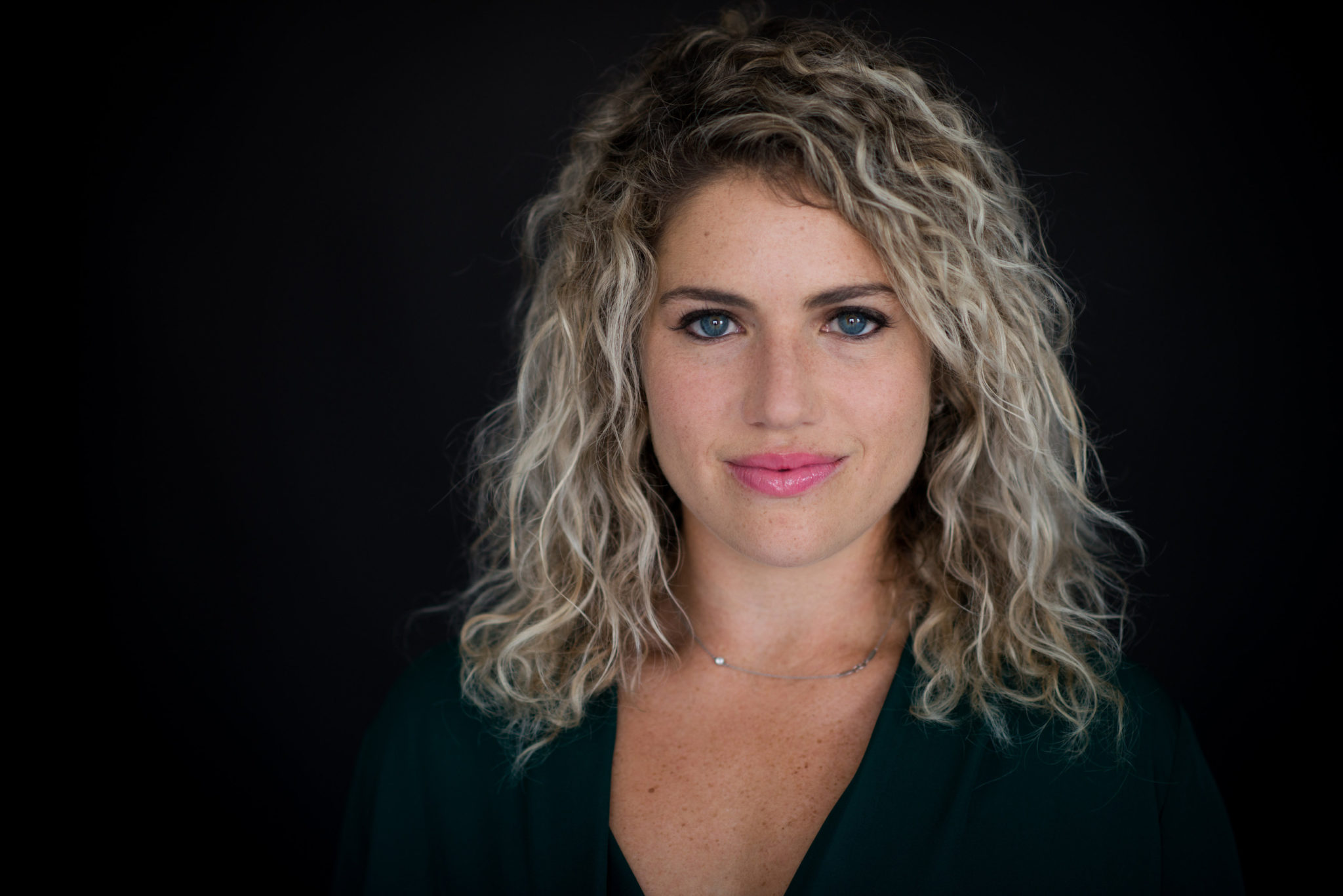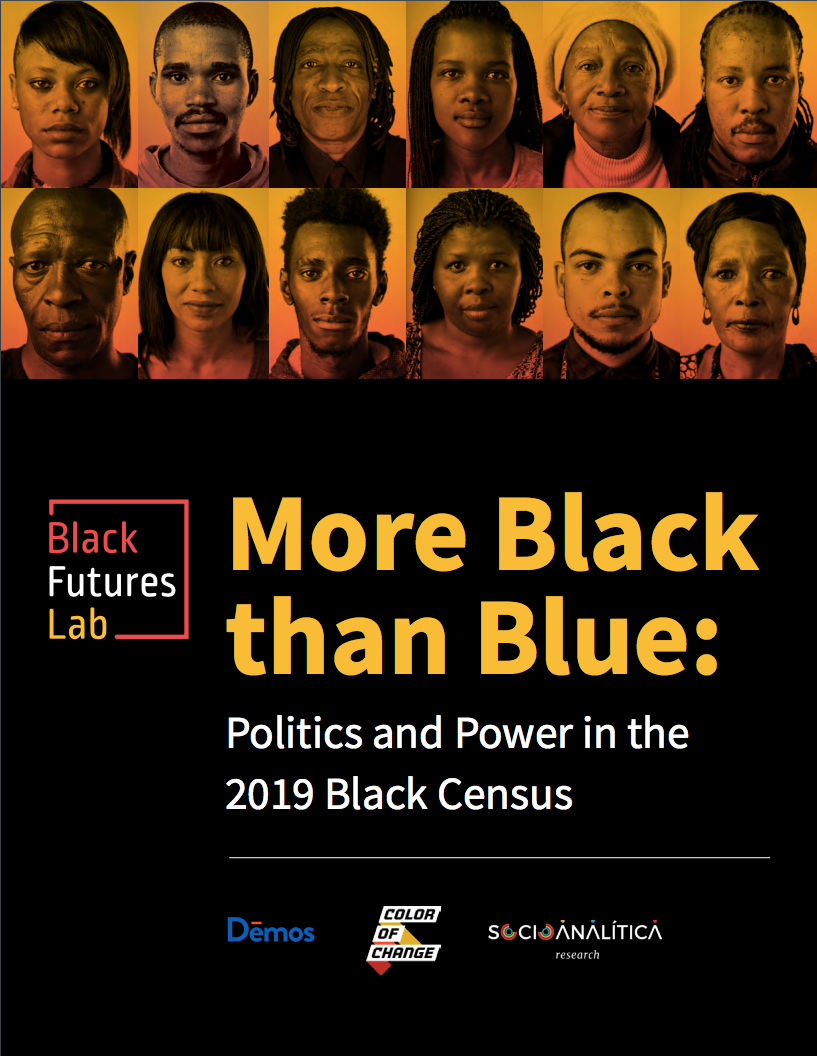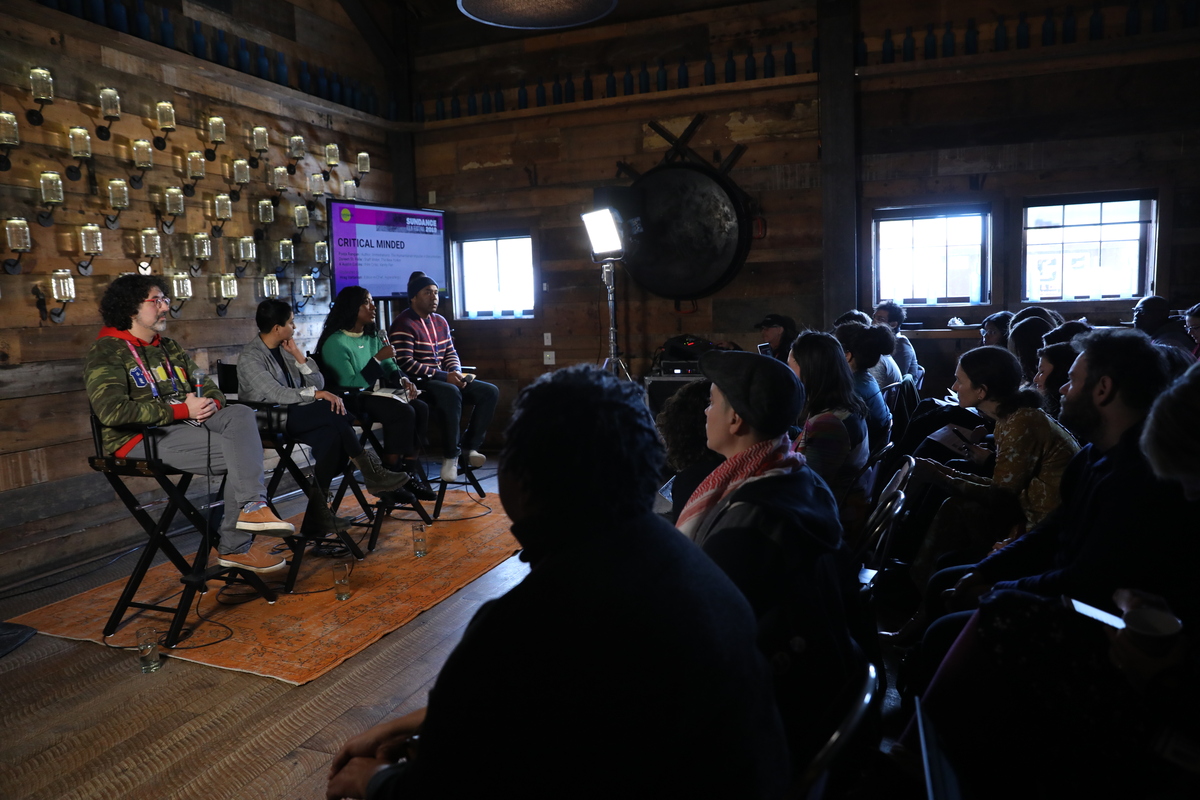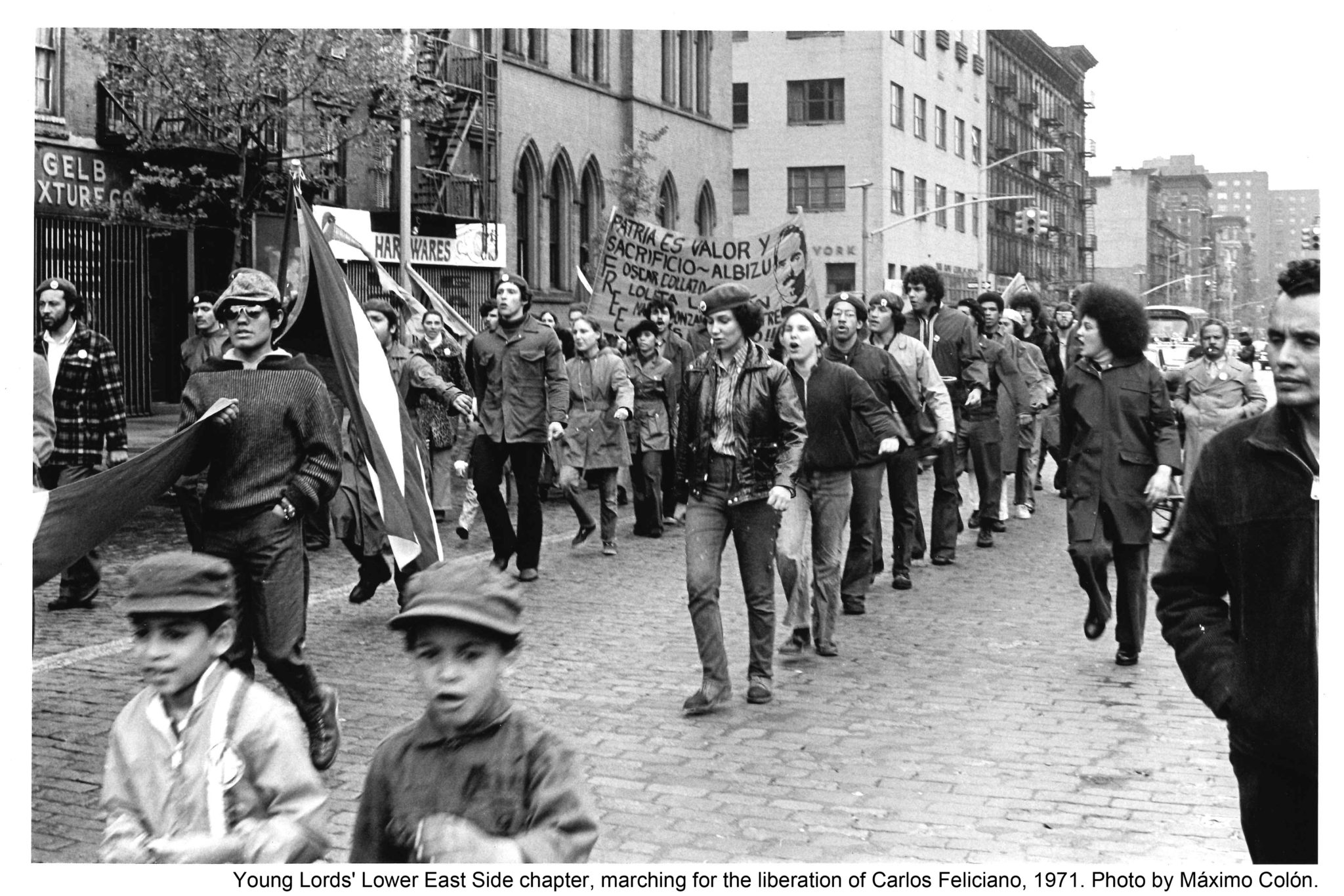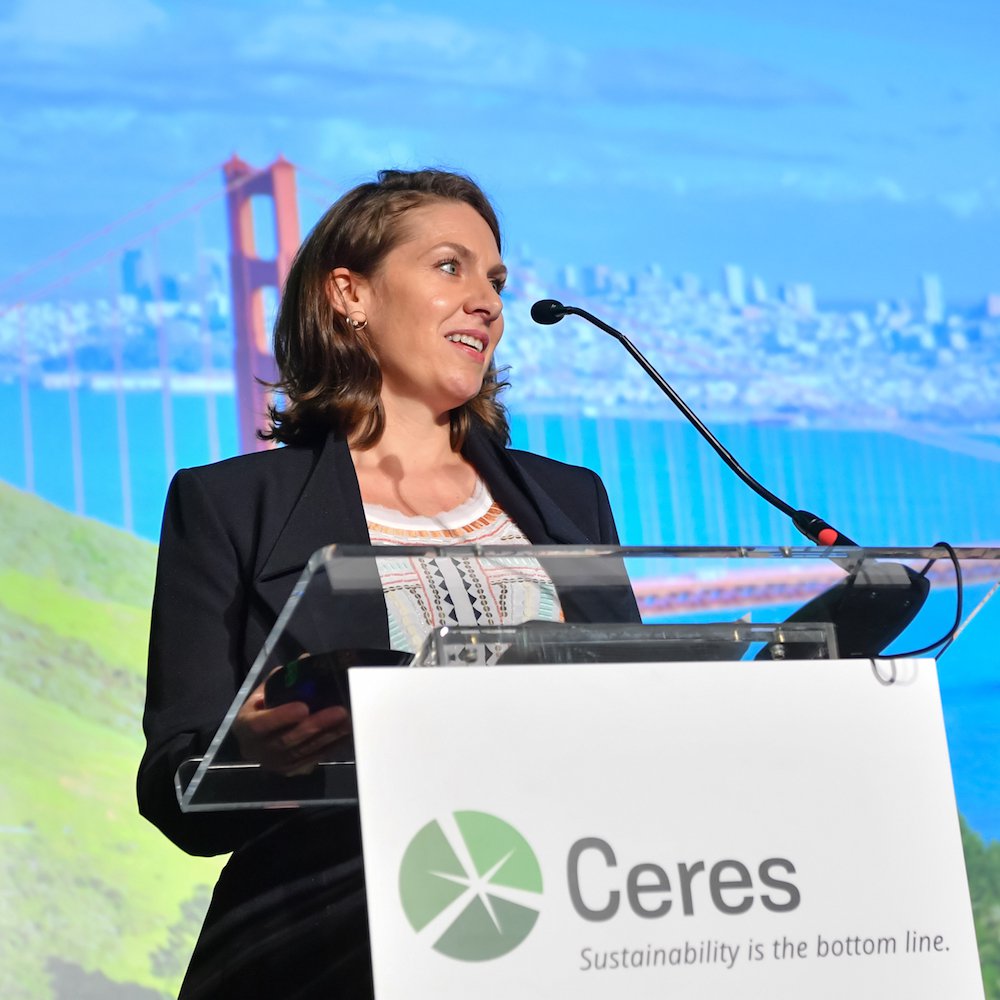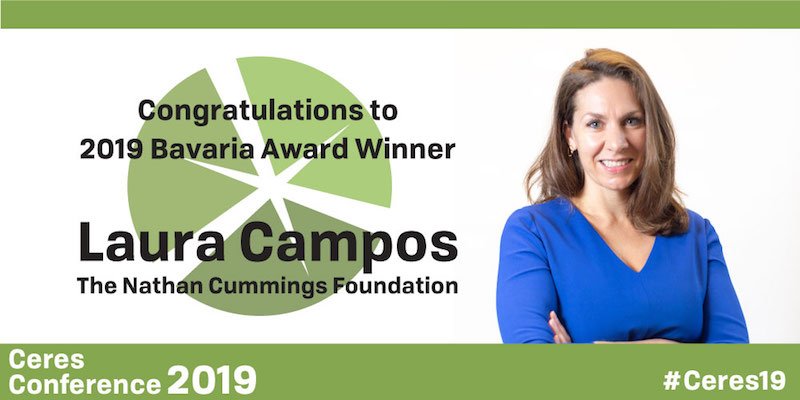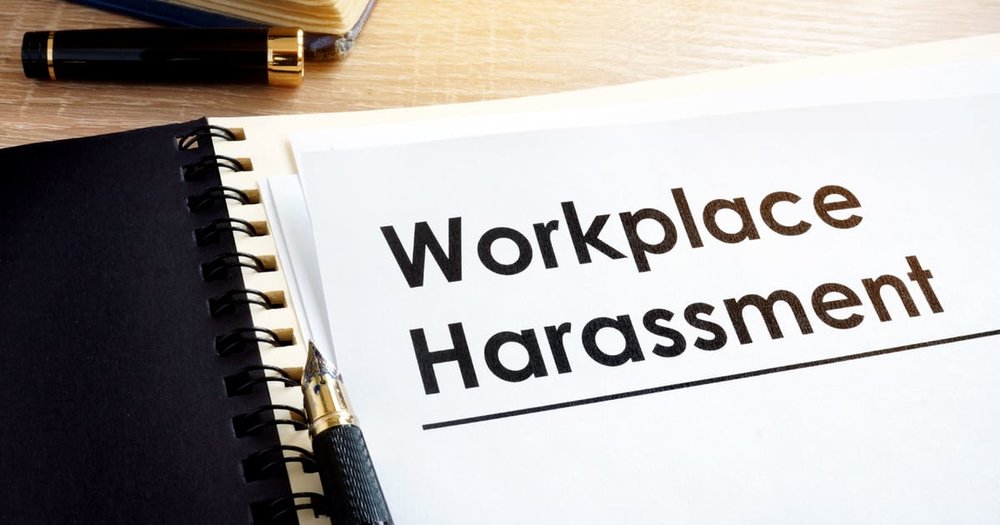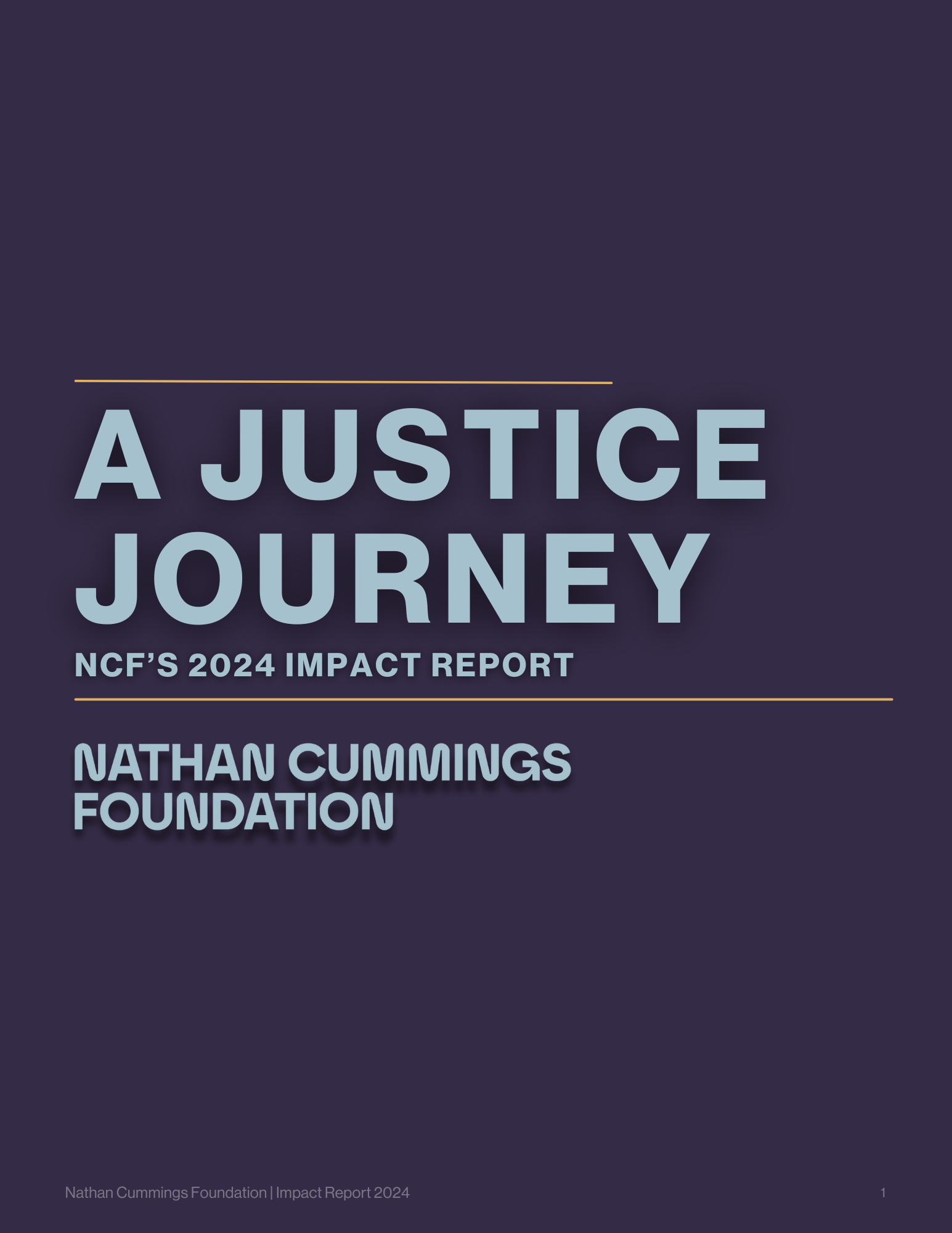The three emerging leaders will use their awards to transform policing policies to protect people of color, build clean and inclusive economies in Navajo communities, and economically empower LGBTQ youth of color to lead their own lives.
NEW YORK — Addressing the climate crisis and reversing growing inequality calls for bold, courageous leaders like Chas Moore, Wahleah Johns, and Jonathan Lykes – the three recipients of the 2019 Nathan Cummings Foundation Fellowship. The Fellowship Selection Committee – made up of experts in the social justice field and NCF staff and Board – received over 400 applications and selected three among a group of 10 exceptionally strong finalists that best advanced NCF’s mission to build a more just, vibrant, sustainable and democratic society. The three fellows will receive up to $150,000 each to turn their ideas into meaningful action.
“With our fellows, we seek leaders willing to work in new ways, bridge divides and push break-through ideas that make the ‘impossible’, possible. That’s exactly what we found in our three new fellows,” said Sharon Alpert, President and CEO. “We chose leaders with daring visions, who are building the power needed on the ground to reimagine a better future for people and the planet.”
Now in its fifth year, the 18-month Fellowship offers movement builders, disruptors and system thinkers the resources and networks they need to tackle two of the most critical issues of our time: climate change and inequality. It also reflects the important role of NCF – and philanthropy more broadly – in cultivating the next generation of social justice leaders.
Together, the 2019 Fellows will pursue projects related to NCF’s core focus areas: racial and economic justice; corporate and political accountability; voice, creativity and culture; and inclusive clean economy.
Chas Moore (Austin, TX). When Chas founded the Austin Justice Coalition (AJC) in 2015, Austin had the highest per capita rate of police shootings in Texas. Determined to reduce the city’s overreliance on police, Chas created what has become one of the most active local organization representing the interests of Black Austinites.
One year later – in response to the Police Department’s request for $13 million to hire more officers – AJC launched the Better Before More campaign. Under Chas’ leadership, they organized “the hell out of every part of town” – and convinced the city’s residents to defeat the police contract. Through this fellowship, Chas will continue his fight against entrenched interests and empower communities to respect and improve the Black experience.
“I wholeheartedly believe that until we address the policies and practices that are intact within our local police departments, we can’t fully expect to adequately and effectively bring about the necessary changes for our criminal justice as a whole…unless we continue to elevate the voices of those individuals who are directly affected by these systems and institutions, we are going to continue to have people with no lived experiences with or within these institutions trying to come up with solutions to problems that they haven’t encountered.”
Wahleah Johns (Oakland, CA). Of the 20,000 families in the United States without access to electricity, three quarters live on the Navajo Nation. Wahleah is committed to changing this statistic. Through a Native American and women-led organization, Native Renewables , Wahleah is bringing solar energy to Native communities, while training the first generation of Navajo solar installers. Working at the intersection of inclusive clean economy and racial justice, the community-driven Navajo Clean Energy Program seeks to enhance tribal sovereignty and energy independence, while creating sustainable jobs and wealth – empowering families with affordable, reliable and clean electricity.
A Navajo woman herself, Wahleah understands tribal political structures and has won various initiatives advocating for health, the economy and the environment in Native communities. Wahleah’s idea to apply Indigenous ecological knowledge and leadership to climate change solutions caught the selection committee’s eye.
“I feel incredibly aligned with NCF’s values and I approach them from the perspective of a Navajo woman,” Wahleah explained in her application. “Using the teachings that have sustained Indigenous peoples for countless generations, I hope to inspire change and create a model for the just transition to clean energy we urgently need.”
Jonathan Lykes (Washington, D.C.). Imagine a world where LGBTQ youth of color are empowered to lead their own lives, free from systemic violence. This vision guides Jonathan’s pioneering work, the Keeping the Ballroom Community Alive Network (KBCAN), focuses on building power, providing healing spaces and training leaders in trauma-informed Black, queer and feminist approaches to transform care and policymaking.
The first initiative of its kind, Jonathan’s collaboration with the House and Ballroom Community seeks to harness the power of queer and trans culture, storytelling and ritual to radically transform the lives of LGBTQ youth of color. His work is rooted in a set of liberation values, practices and strategies that promote gender self-determination, freedom and the dismantling of patriarchal systems.
“The House and Ballroom Community knows the value of family. It aligns with the values embedded into four generations of social justice work led by the Cummings family. I would like to engage with NCF on gender liberation work to ensure all people have a seat at the table, particularly those who are queer, trans and GNC. This work is ultimately about my community being able to joyfully live out their self-determined lives without limitations or barriers.”
Previous Fellows are leading voices for social justice, including Jasiri X, a Pittsburgh-based rapper and activist who trains artists to become activists for social change; Saqid Bhatti, co-executive director at the Action Center on Race and the Economy (ACRE) – an NCF partner and campaign hub for organizations working at the intersection of racial justice and corporate accountability; and Bridgit Antoinette Evans, one of the foremost thought leaders in the culture change strategy field and leader of the Pop Culture Collaborative, which NCF helped found.
Fellows are encouraged to push NCF beyond its boundaries by opening productive new lines of inquiry, asking provocative questions, challenging conventional wisdom and developing new ideas, approaches and strategies.
“The fellowship is a two-way street – fellows enrich our work by deepening our understanding of the communities we’re fighting for and the issues we care about,” said Leticia Peguero, Vice President of Programs. “Our Board and staff are so excited to learn and partner with them.”
To learn more about the work of this year’s finalists and past fellows visit: https://nathancummings.org/our-fellows/.
The Nathan Cummings Foundation (NCF) announced Jaimie Mayer has succeeded Ruth Cummings as Chair of the Board of Trustees. The great-granddaughter of NCF Founder Nathan Cummings and granddaughter of NCF’s first board chair, Beatrice “Buddy” Cummings Mayer, Jaimie was imbued with NCF’s core values from an early age.
This is the first time a fourth-generation Cummings family member has run NCF’s Board, demonstrating NCF’s commitment to cultivating the next generation of leadership in social justice family philanthropy. Having served on the board for 18 years and lived and breathed the world of philanthropy her whole life, Jaimie is prepared to lead NCF as it continues to leverage the full range of its assets to pursue justice for people and the planet.
“This is an important milestone in the life of the foundation that represents the family’s commitment to working as an intergenerational philanthropy, intentionally investing in and growing our leadership across generations. I am excited to see Jaimie lead us and bring her clear vision to our work,” Ruth said. “Her passion for social justice will deepen the partnership among board and staff and in the fields and issues we seek to influence.”
Jaimie also brings a wealth of philanthropic and management knowledge to the role. Jaimie’s career as a theatre and film producer spans from Broadway to nonprofit theatre, and from Sundance to Showtime. In the philanthropic realm, Jaimie works with philanthropists in their 20s and 30s looking to create their footprint, with families trying to integrate the next generation, and with non-profits cultivating the next-gen leaders.
“We need to not only fund trailblazers and risk-takers, but hold ourselves accountable to blazing our own trails, and taking our own risks,” Jaimie said. “The best way to honor my family’s legacy is to break down old silos and create new rules, new systems, and new behaviors not only in our grantmaking, but in our day-to-day operations as well. That, above all else, will inspire the next generation of philanthropic leaders.”
Jaimie firmly believes we must walk the walk by holding ourselves and the philanthropic sector accountable to our core values, principles, and commitments. That includes looking at how we take on issues of race, power, and privilege internally and externally. Everything from where we invest our endowment, to who we hire, to who we give grants to, shows what we value in the world. Now more than ever, we need to interrogate what it means – and what it takes – to create meaningful change.
“Jaimie’s longstanding dedication to the Foundation is a testament to her belief in the power of philanthropy to interrogate, disrupt, and inspire,” said CEO and President Sharon Alpert. “Her career working in the nonprofit arts sector grounds her in what our partners need and the critical role that long-term philanthropic support plays. She deeply understands why investing in culture change, policy change, and movement building are all necessary to spur transformative change, and I am thrilled to have her working with me in this next chapter.”
“The Black Futures Lab’s Black Census Project is
the largest survey of Black people conducted
in the United States since Reconstruction.” Read it at BlackFuturesLab.org.
For decades, the critics who have covered this country’s major film festivals have looked like most of the people who make the films: white and male. This means that white men have been at the premieres, writing the all-important first reviews. They have defined the discourse, deciding which films matter and which films don’t, and impacting distribution and awards buzz as well. And even as film festivals have made an effort to ensure that directors, writers, and on-screen talent have become more and more diverse, the critics have stayed monochromatic.
But this year, at the Sundance Film Festival, things changed: thanks to a Press Inclusion Initiative to bring critics of color, LGBTQIA, women, and critics with disabilities to cover the festival, 63% of the accredited press came from underrepresented communities. It was a game changer given how lopsided the landscape is: a study by the Annenberg Inclusion Initiative found there were 27 white male critics for every one female critic of color. We provided founding support to the initiative along with Emerson Collective, Ford Foundation, the John D. and Catherine T. MacArthur Foundation, and Open Society Foundations.
“We realized we had a blind spot,” Sundance Executive Director Keri Putnam said. “Diversity isn’t just about who’s making the films, it’s about how they enter the world. We realized, frankly later than we should have, the implications of the fact that the diverse community of artists here were premiering their work to mostly white male critics. This lack of inclusion has real world implications to sales, distribution and opportunity.”
There’s growing momentum on this issue: in Hollywood, actors like Tessa Thompson and Brie Larson spoke up about the importance of diversifying film criticism and Time’s Up made it a key focus area. For the Nathan Cummings Foundation and Ford Foundation, supporting this initiative was a no-brainer, consistent with our Critical Minded initiative, which works to support cultural critics of color and to shift our discourse so it’s more representative of the country.
In addition to supporting the initiative, the Nathan Cummings Foundation also held a panel highlighting the power of disrupting the dominant white gaze in criticism, as part of the Ford Foundation’s annual JustFilm’s program. The panel featured Pooja Rangan of Amherst College, Hrag Vartanian of Hyperallergic, Doreen St. Félix of The New Yorker, and K. Austin Collins of Vanity Fair. You can view the full panel here.
During the panel, Doreen St. Félix of The New Yorker said: “It’s different if we look at a film like ‘Green Book’ not through the platform of whiteness, but through that of blackness. You just end up with a different take.”
But often that different take comes late. The Oscar-winning film “Green Book” debuted at the Toronto Film Festival last year, receiving mostly enthusiastic reviews – from mostly white critics. Fast forward a few months to the film’s opening on screens everywhere, and Black critics had a completely different perspective – but the dominant narrative had already gained momentum.
During the Critical Minded panel discussion, Vanity Fair critic K. Austin Collins had this to say: “I think what the makers of this movie are missing is just that many Black critics didn’t get to see this movie until it came out; and because it was released during Oscar season, it so happens that when Black critics do finally get to see this movie, it is seen as disrupting the Oscar campaign. I don’t think any of us really care about that. We care about representation.”
The early coverage of “Coco” tells a similar story: when “Coco,” a film about the magic of Mexican culture, was released, not one of the first rounds of reviews appearing in major publications was written by a Latinx critic. In response, Remezcla hired five Latinx critics to review the film.
We’ve seen what happens when cultural critics of color have the opportunity to shape the narrative from the start. There are few, if any, Latinx film critics with full-time gigs. But thanks to the Press Inclusion Initiative, at least four Latinx critics attended the Sundance premiere of “The Infiltrators,” a film by Latinx filmmakers Alex Rivera and Cristina Ibarra about undocumented young people who risk deportation to infiltrate a detention center in Florida. Among the critics there that night was Carlos Aguilar, an undocumented person himself. You can read his review in The Wrap here. “The Infiltrators” went on to win two Sundance awards.
If we want to change the world, we need to change the narrative, and the narratives and mythologies we believe in as a society are deeply embedded in our culture. That’s why it’s essential to have critics of color responding to that culture, amplifying powerful new stories and disrupting the problematic mythologies that many of us take for granted. Through the Critical Minded initiative, the Sundance Press Inclusion Initiative, and our partners and grantees, we are using all of our tools to nourish a diverse, sustainable and equitable cultural criticism sector.
“Critics can challenge us to become active audiences instead of passive observers, and at their best, critics of color reveal layers that would be invisible without their eyes,” Elizabeth Méndez Berry, director of our Voice, Creativity and Culture program, wrote in Hyperallergic. “Art is our mirror — in which we can confront our beautiful, our bad and our ugly. Critics refuse to look away, and they insist that we join them.”
At a time when hate and division are on the rise, we need critics’ voices now more than ever.
Foundations have trillions of dollars in assets but often only leverage 5 per cent towards grant making that advances their mission. Just imagine what we could achieve if we leveraged the other 95 percent?
Read more at Top 1000 Funds.
The Nathan Cummings Foundation (NCF) in partnership with the Loisaida Center, is pleased to announce the opening of Pasado y Presente: Art After the Young Lords, an exhibition commemorating the 50th anniversary of the founding of the Young Lords Organization in New York. The show will be on view at the Nathan Cummings Foundation offices from May 3 through October 25, 2019.
Active between 1969 and 1975, The Young Lords described themselves as a revolutionary party fighting for the liberation of all oppressed people. Their spectacular demonstrations, artful self-presentation, and masterful deployment of DIY media via their newspaper, Pa’lante, brought international attention to demands voiced in black and brown communities across the United States for cultural equity, equal rights for women and the LGBTQ population; communal control of housing, healthcare, education, sanitation; and independence for Puerto Rico.
Spanning different generations, nationalities, and ethnicities, the artists displayed in Pasado y Presente represent a creative community that is connected to the Young Lords by their passion for art in the service of social justice and vanguard aesthetics.
Curated by Yasmin Ramirez, the exhibition displayed at NCF illuminates the influence that the Lords have had on activists and artists far beyond their six years as a formal organization.
“The Lords created an imaginative vision of the future, while tending to the practical needs of the present,” said Leticia Peguero, VP of Programs at NCF. “They were ahead of their time: multiracial and intersectional. And this is the perfect exhibit for the foundation to host because we’re interested in how the inequalities we’re fighting against are so intertwined– and in fostering visionary ways to move our communities forward.”
Featured work includes documentary photographs of Young Lords activism by Máximo Colón and Luis Carle and vintage posters from Taller Boricua, an East Harlem print collective that was allied with the Young Lords. Additional artists on display at NCF and Loisaida Inc. include: AgitArte, Pepe Coronado, Sophia Dawson, Marcos Dimas,Hatuey Ramos Fermín, Miguel Luciano, Carlos Jesús Martínez Domínguez, Shellyne Rodríguez, Adrián Viajero Román, Juan Sánchez, Nitza Tufiño, Rafael Tufiño, Anthony Rosado, Valor y Cambio, Pelén Obesa, Karen Revis, Scherezade García and Alex Fernández.
Parallel to the exhibition, Pasado y Presente will have a presence at the Loisaida Center during the show by AgitArte, Coronado Print Studio, Scherezade García, and Valor y Cambio that explores migration, movement, intra-diasporic Caribbean identity in NYC, alternative economies, story-telling, and decolonial narratives. On Sunday, May 26, several artists participating in Pasado y Presente will take part in interactive urban interventions during the 32nd Annual Loisaida Festival. Additionally, NCF and Loisaida will host a series of public programs investigating topics such as the history and influence of the Young Lords in New York, feminist and LGBTQ activism in Latinx communities, cultural production and organizing in Puerto Rico post-Maria, the intersection of environmental justice with anti-displacement efforts in NYC’s poor and working-class neighborhoods.
Loisaida itself stems from the Young Lords’ creative drive, which sought to empower Puerto Ricans, along with other marginalized communities, through the strategic deployment of public cultural and aesthetic actions, to re-imagine diasporic social ties and power dynamics by positing alternative visions of unapologetic and ever more inclusive ideas of cultural citizenship.
“I am proud to be involved in an exhibit that memorializes a group that still anchors our visions of justice, and shapes our horizons of liberty,” Libertad O. Guerra, Chief Curator of Loisaida, said. “We all owe ourselves revisiting the Young Lords legacy, for their acute and momentous concerns regarding health and spatial equity, state sanctioned / un-sanctioned segregation, and collective and personal self-determination, is as significant today as 50 years ago.“
To set up an appointment to visit the exhibition, please contact exhibits@nathancummings.org. For more information on Loisaida, NCF, and schedule updates on public programs visit
http://loisaida.org and https://nathancummings.org. For press questions, contact Candice.Wynter@nathancummings.org.
Nathan Cummings Foundation’s Laura Campos was awarded the 2019 Joan Bavaria Award for her leadership on sustainability. Below are her full remarks from the Ceres Conference, where she accepted the award.
Thank you, Ceres and Trillium Asset Management, for naming me the winner of the 2019 Joan Bavaria Award. It’s incredibly humbling, both in light of Joan’s extraordinary achievements and because of past recipients like Sister Pat Daly, Tim Smith, Bob Massie and Rich Ferlato, all of whom I’ve admired for years.
I’ve been incredibly lucky to spend the past decade and a half at the Nathan Cummings Foundation, which, with the support of our board, pioneered the use of active ownership strategies to advance programmatic goals while helping to protect the long-term value of the companies that make up our endowment. I’m proud to say that our board recently took the bold step of committing to align all of the Foundation’s assets with its mission. I’m also proud to say that as the Director of the Foundation’s Corporate & Political Accountability work, I’ve been empowered to direct grant dollars to support efforts to ensure that capital markets temper the unfettered pursuit of profits with concern for both people and planet.
Like those who give this award and the foundation I work for, I firmly believe that capital markets must balance economic prosperity with social and environmental concerns. Doing so has repeatedly been shown to be not just the right thing to do, but the profitable thing to do over the longer term.
Of course, we’re hardly unique in this view.
The CEO of the world’s largest asset manager has called on the chief executives of public companies to exert leadership on urgent social challenges. In doing so, he observed that, “Companies that fulfill their purpose and responsibilities to stakeholders reap rewards over the long-term. Companies that ignore them stumble and fail.”
This last point is vital. Companies that focus solely on short-term profits while ignoring critical issues like climate change, racial justice and inequality will fail. The American public wants action on these critical issues, and they increasingly think that the CEOs of large corporations have a responsibility to take a stand on them. In other words, they recognize that the investors and NGOs in this room can’t respond effectively to environmental and social challenges on their own. Corporations must not obstruct progress; they must join us in fighting for it.
Fortunately, some companies, many of them represented in this room today, already are. Multiple companies now have ambitious renewable energy targets, thanks in part to Ceres’ work. Efforts led by the Climate Majority Project have helped encourage companies to link executive compensation to progress on greenhouse gas emission reduction goals. Work led by members of the Interfaith Center of Corporate Responsibility has helped to move companies away from financing private prisons and toward better monitoring of their supply chains for prison and diversion program labor. We need more efforts like these.
But we know that it’s not just companies that will falter if environmental and social risks are externalized and ignored.
It’s increasingly clear that capitalism itself is threatened by growing inequality, racial inequities and unchecked climate change. Polls show that an increasing number of young Americans prefer socialism to capitalism. Bedrock concepts like the consumer welfare standard and shareholder primacy, which have underpinned our economic system for the past 40+ years, are now recognized as drivers of some of our biggest economic, social and environmental problems and are actively being rethought. Even ardent supporters of capitalism are calling for reform, with the founder of the world’s largest hedge fund recently saying that capitalism must evolve or die.
If we are to reform capitalism, head off catastrophic climate change and address inequality, we must do more than tinker around the edges. At a time when there’s growing recognition that capitalism as currently practiced is no longer working and that our market system must be fundamentally changed, Joan Bavaria’s work shows us the way forward. As Ceres, the Global Reporting Initiative, Trillium and so many other efforts Joan touched have long recognized, capital markets must balance economic prosperity with concern for society and the environment. Doing so is fundamental to capitalism’s continued survival and to ours.
Thank you.
Laura Campos
Director of Corporate and Political Accountability
Dear Partners,
In the United States, Israel, and around the world, advocates, activists, and leaders face immense challenges that require bold new approaches.
Democratic societies globally are under attack. Far-right ethnic supremacist populist movements use racism and fear to undermine democratic institutions and norms. Devastating inequality provides a ripe environment for extremist politics to emerge. This is not the first time in history we’ve faced these challenges and we know that the only antidote is multiethnic, broad-based social movements that can bridge divides and uphold the values of democracy, pluralism, and human dignity.
Today, we are extremely concerned by those threats in Israel – a place where we have supported work for more than 27 years. We have seen the removal of protections for the rights of minorities, the undercutting of freedom of speech, and the undermining of a vision of an Israeli democracy that would “uphold the full social and political equality of all its citizens,” as stated in the Israeli Declaration of Independence. These threats stand in the way of a just and lasting political agreement between the Israeli government and the Palestinians that would end the ongoing Israeli military occupation of Palestinian territories, provide for safety and security for all, and advance a more peaceful future.
As a social justice funder rooted in Jewish values that cares deeply about the future of all Israelis and Palestinians, now more than ever, we have both the responsibility and the opportunity to work with a diversity of partners in Israel and the U.S. Our grantmaking in Israel has focused on closing social and economic gaps, bringing about a two-state solution that creates a just and sustainable peace for Israelis and Palestinians, supporting the emergence of a wide field of environmental organizations, Israelis advocating for religious pluralism, investing in Arab communities in Israel, building a shared society, and supporting women as agents of change in Israeli society.
We stand committed to a vision of a multiethnic democracy in Israel based on solidarity across difference, shared belonging, and equality across all social sectors that affirms the human rights and self-determination of the Jewish and Palestinian people. We will continue to invest for the long-haul in the movements, leaders, and organizations who are upholding and advancing democracy in Israel. We remain optimistic about the promise of multiethnic democracy and justice movements to capture hearts, minds, and radical imagination.
Here in the U.S., we are also increasingly concerned about how Israel is being used as a wedge issue to divide movements for justice. We believe that the only way forward is to build the capacity of our leaders and movements to navigate complexity and disagreement, and to support them as they forge a deeper understanding and reshape what solutions are possible.
With this context in mind, NCF’s Israel portfolio is evolving to bring our grantmaking in Israel into alignment with our strategy and approach across all issues. Following a strategic review process as a board and staff community, we will focus our support on those building a just, vibrant, sustainable, and democratic society in Israel, as we do in the United States, through three strategies:
- Supporting civil society organizations and social movements, fortifying Israel’s democratic institutions, and advancing policies that ensure equality and solidarity across difference;
- Shifting the narrative in Israel from the prevailing worldview of fear and divisiveness to one of “shared belonging” across all identities using the arts, culture, and storytelling; and
- Deepening relationships between Israeli and U.S. change-makers that advance multiethnic pro-democracy movements in both countries.
The majority of our grantmaking is implemented in strategic and operational partnership with the New Israel Fund, the leading organization advancing democracy and equality for all Israelis, including an end to the occupation. Our partnership leverages NIF’s deep expertise, staff on the ground, and their extensive networks and relationships in the region.
Click here to review our full guidelines on our website.
Through our strategy review process, we deeply engaged on the issues with NCF’s diverse staff and board team. We affirmed together that the diversity of experience, background, and perspective that our people bring with them is a critical and valuable asset. Rather than shy away from tough conversations, our approach was to lean into dialogue across difference courageously. While the work is never done, we believe we have emerged more aligned and strategic for having done so.
Last summer, we traveled with our Board, NCF staff, and New Israel Fund staff to Israel and the occupied territories to meet with a broad network of NCF partners and projects advancing equality, peace, and justice in the region.
Our experience shows us how Israel holds not just one story, but multiple narratives and truths. We dove into the heart of these narratives, committing to an openness and willingness to learn and to challenge our own perspectives.
We met with activists and artists, culture-makers and journalists, Jewish and Arab elected officials from across the political spectrum, and those struggling to be heard. We met with Palestinian citizens of Israel; Palestinians living in East Jerusalem and the occupied West Bank; Ashkenazi Jews who emigrated from Europe; Mizrahi Jews from all over the Middle East and Africa; Ethiopian Jews; refugees from South Sudan and Eritrea; people of color (both Jewish and Arab), LGBTQ Israelis, those benefiting from the modern economy and those who are left out; with Jewish settlers advocating for co-existence; human rights activists opposing the ongoing military occupation of the West Bank; women leading intersectional movements for change; and people with roots going back thousands of years in the region. We are inspired by their vision of a society where all belong and their deep commitment to make that change happen.
We are incredibly grateful to the leadership on our Board and staff, particularly Michael Cummings and Phillip Sorenson, who co-chaired our strategy review, and to Isaac Luria who deftly guided us through it all with a passion and commitment to a future where another way is possible. We look forward to sharing more about our journey with you as it continues for us and our partners in the United States and in Israel.
Warmly,
Ruth Cummings, Board Chair
Sharon Alpert, President and CEO
From one president to many others,
Once again, I write heartbroken, this time over the massacre of 50 Muslim brothers and sisters in Christchurch, New Zealand. We join that nation in mourning their souls and celebrating their lives.
I am also angry. The world bore witness to this horrific act of violence, livestreamed on social media platforms that have been enabling the hate. President Trump said he doesn’t think white nationalism is a growing threat. I vehemently disagree.
The truth is that hate crimes are rising and hate groups are at a record high. Data from U.S. justice officials also show a significant increase in extremist violence. Here in the U.S., our communities are still suffering from horrific terror inflicted by white nationalists, including the mass shootings at the Oak Creek gurdwara in Wisconsin, the Tree of Life synagogue in Pittsburgh and the Emanuel AME Church in Charleston, as well as violence at the 2017 Unite the Right march in Charlottesville, Virginia. White nationalism is a global trend, impacting societies as diverse as Poland, Italy, Israel, and more.
If we have the privilege of being a leader, be it president of a country or an organization, we need to see the problem for what it is and commit to standing with those brave enough to confront it. I join our partners in calling out white nationalism for what it is – a terror movement grounded in centuries of white supremacy. A movement that is undermining democracy and our shared values of pluralism, compassion, and fairness.
We need only to look at the example of New Zealand’s Prime Minister Jacinda Ardern to know what courageous leaders do at times like these. Our shared humanity is what unites us, and we must work to bridge these divides and face these threats with love and compassion.
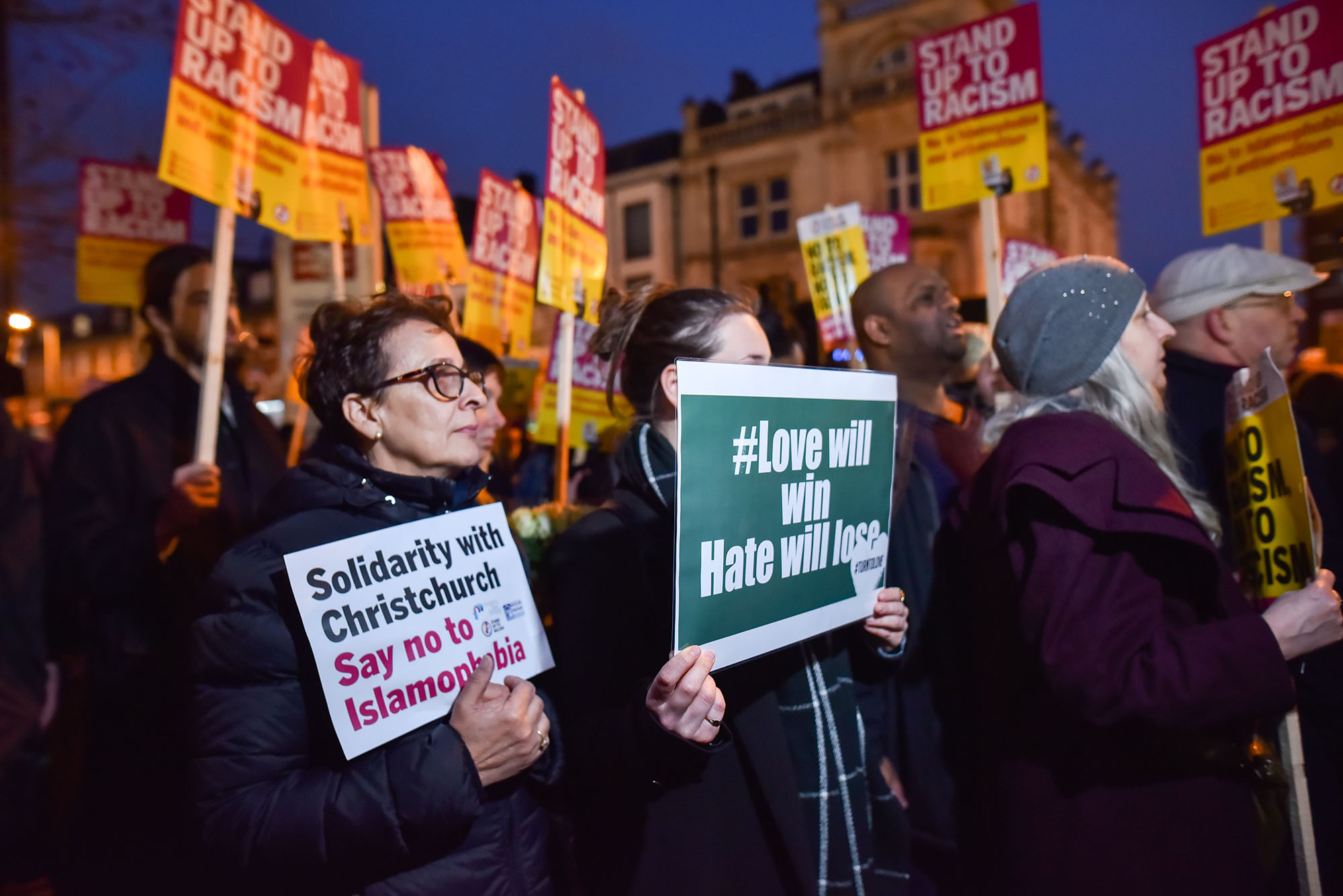
We must count it, condemn it and confront it.
At the Nathan Cummings Foundation, we have grown increasingly concerned about white nationalism. In the last three years, we targeted new and increased grantmaking to support partners that track extremist activity, train communities and movement leaders about the manifestations of white supremacy – including antisemitism, racism, xenophobia, and religious bigotry of all forms – and build powerful movements of people organizing to defend our democracy and hold our leaders accountable.
From one foundation president to another, I urge you to add your voice to collective, clear-eyed action to move us from tragedy to transformation. We must commit ourselves to both bearing witness and to supporting bold leadership that is calling out white nationalism and the violence it unleashes.
We must denounce policies that encourage or coddle white nationalists. We cannot forget that a ban on Muslim travelers is still in place, or that in any given year, dozens of anti-Muslim bills are introduced in state legislatures and municipal governments. White nationalism can show up in policy and practice in any number of institutions, including police departments, polling places, courts, schools, banks, and more. And we must hold accountable the social platforms that are, quite literally, profiting from the spread of hate.
Together, we can #deactivate hate. At NCF, we are inspired by the work of our grantee partners and urge you to join us.
- Raise the alarm about growing white nationalism. Western States Center, Political Research Associates, and the Anti-Defamation League are providing research, analysis, and training to help the country understand white nationalism, so we can see the threat for what it is and push back effectively.
- Fight back in radical solidarity. Hate threatens all of us, but we are stronger when we work together across multiple communities and identities. Organizations like the Pillars Fund, Bend the Arc, Faith in Action, Jews for Racial and Economic Justice, New Israel Fund, and T’ruah are using their collective voice to condemn hate and stand in unity with all those targeted by it.
- Build the political and economic power of marginalized communities, and fight against policies that institutionalize white nationalism, like Poor People’s Campaign, Community Change, National Domestic Workers Alliance, Mijente, NAACP and Jolt Initiative.
- Grow and nurture a culture that can generate and hold a world where all flourish. Auburn Seminary, the Revolutionary Love Project, and the Faith Matters Network are building the possibility of a world repaired and healed.
- Call on social media and technology companies to tackle hate on their platforms. Partners like Color of Change, Center for Media Justice, Action Center on Race & the Economy, and Interfaith Center on Corporate Responsibility are pushing corporations to curb hate on their platforms through campaigning, shareholder and investor organizing, and other strategies.
Under our watch, no one should be able to argue credibly that white supremacy and nationalism aren’t threats to our democracy, our economic security, and the health and vitality of the social fabric of our communities.
This is the moment for philanthropy to come together. We hope you will join us later this spring when we will convene, with our partners, a Philanthropic Roundtable to discuss the threat white nationalism poses to social justice and democracy, issues which we all care so deeply about.
Later this week, Muslim communities all over the world will once again gather in mosques to attend Friday prayers. Jewish communities will attend synagogues. Churches of all denominations will welcome people of all backgrounds together. Evil acts designed to drive us into hiding, to isolate us from our communities, and to punish us for our faith or race will never ultimately succeed. The best way to honor all those lost to violence is to stand powerfully against hate, bigotry, and white nationalism – and just as powerfully for love, acceptance, justice, and our shared humanity.
The Nathan Cummings Foundation stands alongside all of our partners and grantees in the United States and around the world. Count it, condemn it, confront it. Together we can #deactivatehate.
In hope,
Sharon Alpert
President & CEO
Nathan Cummings Foundation
“Thanks to Tarana Burke’s Me Too movement, TIME’S UP and others, it’s no longer possible to ignore the devastating impacts of discrimination, harassment and sexual assault in the workplace. In the business world, we’ve seen many alleged harassers removed from positions of power. But while Les Moonves and his ilk may be gone, it’s not always clear whether companies are taking steps to eliminate not just the alleged harassers, but the policies and practices that helped shield them from accountability in the first place.”
Written by Laura Campos, Director of Corporate and Political Accountability at NCF and Meredith Benton, Principal, Whistle Stop Capital
Read more: Proxy Preview
